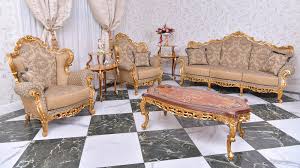designer furniture represents a fusion of artistry, functionality, and innovation, elevating the ordinary to the extraordinary. Here’s all you need to know about this distinctive genre of furnishings.
History and Evolution: Designer furniture emerged in the early 20th century as a response to industrialization’s mass-produced uniformity. Visionaries like Le Corbusier, Charles and Ray Eames, and Ludwig Mies van der Rohe pioneered the movement, prioritizing form and function. Their creations integrated avant-garde designs with meticulous craftsmanship, setting the benchmark for future designers.
Distinctive Features: What sets designer furniture apart is its emphasis on uniqueness and quality. Crafted with premium materials such as fine woods, metals, and luxurious fabrics, each piece exudes sophistication. The attention to detail, from sleek lines to innovative structures, reflects the designer’s artistic vision and technical expertise.
Functionality and Comfort: Despite their artistic flair, designer pieces prioritize comfort and usability. Ergonomic considerations ensure practicality without compromising on aesthetics. Whether it’s a lounge chair or a dining table, every item is meticulously crafted to enhance both visual appeal and comfort, transcending mere utility.
Iconic Pieces: Designer furniture boasts timeless classics that have become iconic symbols of design excellence. From the Eames Lounge Chair to the Barcelona Chair, these masterpieces continue to inspire generations with their enduring elegance and innovation. Owning such pieces not only adds prestige to your space but also serves as a testament to your appreciation for design heritage.
Customization and Personalization: One of the appeals of designer furniture is the opportunity for customization. Many designers offer bespoke services, allowing clients to tailor pieces to their specific preferences and requirements. Whether it’s selecting upholstery fabrics or adjusting dimensions, customization ensures that each piece aligns perfectly with the buyer’s vision.
Investment Value: Designer furniture is not merely functional art; it’s also a sound investment. With its timeless appeal and limited production runs, designer pieces often appreciate in value over time. This makes them not only a statement of style but also a smart financial choice for discerning collectors.
Conclusion: Designer furniture represents the epitome of style, craftsmanship, and innovation. Each piece tells a story of creativity and mastery, transforming living spaces into curated showcases of elegance. Whether you’re drawn to iconic classics or contemporary creations, investing in designer furniture is a testament to your appreciation for exceptional design.



